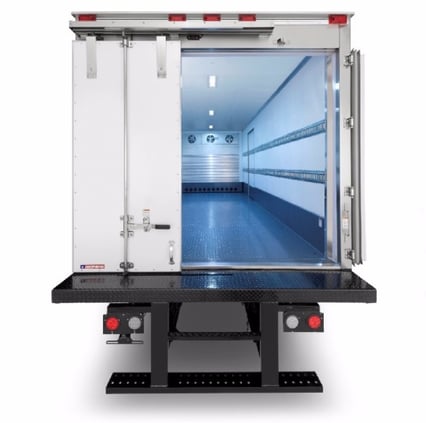REDWOOD LOGIN
Redwood PortalLTL
SCS
SCS Support
Rockfarm
It’s generally understood that the global logistics industry is experiencing a health-amount of growth. A recent report noted that the global reefer market is poised to see nearly a three-percent growth over the period of 2014 till 2019. Whether it’s due to new vessel sharing agreements, or other factors, the cold supply chain is expanding. Noted below are five factors that are stimulating growth in this segment, and why a three-percent growth is likely just the starting point of a rapid expansion.
The global reefer market is forecast to grow at a CAGR of 2.98 percent over the period 2014-2019, according to highlights of a newly published report on the current state of the reefer market. For those not 100% clear, reefer logistics refers to the transportation of goods that are perishable or require temperature-controlled containers to maintain safe usage. Some reefer commodities include perishable foods, medication, computer technology, and more. The reefer or cold supply chain is comprised of multiple, independent steps and touch-points, that ensure the goods are kept at a safe operating temperature from point of origin to the destination.
Across the globe, the cold supply chain annually ships multiple billions of dollars worth of goods. Some of the major regions that make up the global reefer market include APAC (Asian Pacific), EMEA, and North America. In the report that was titled “Global Reefer Shipping Market – 2019 to 2019”, a major component to the efficient operation of the cold supply chain are Vessel Sharing Agreements. A Vessel Sharing Agreement (VSA) is tendered between multiple partners within the cold supply chain that agree to operate an ocean line along specific routes and using certain amounts of vehicles. This process improves the efficiency of the reefer shipping, which is vital to maintaining the integrity of temperature-controlled commodities.
According to the above-titled report, Vessel Sharing Agreements have significantly reduced shipment time – especially within the cold supply chain. This is increasing market share and reduces costs for shippers – which naturally increase the market. There are a few other factors that are impacting this industry positively and help to improve the growth of the cold supply chain.
While there is a lot of debate recently about international trade, tariffs, and other geopolitical arguments, one area that is not directly impacted is the cold supply chain. You’ll notice that commodities like steel and other raw materials are the focal point of international trade wars, but perishable foods and medication is not impacted in this arena. As the need for sustainable food and medication increases across the globe, the demand will expand – and thus, improves the outlook for growth.
Advancements in cold chain storage and transportation have also stimulated a grow-spurt of sorts. Essentially, as technology improves, logistics become more efficient across the board. Technology improves fuel efficiency, reductions in delays due to broken equipment, and a generally improved transportation process. Additional tech savvy improvements with temperature sensors, monitoring equipment, and Wi-Fi connectivity allows carriers to track cold storage on the fly and make adjustments to cargo storage temperature and provide better communication to their customers.
 Consumers across the globe are purchasing frozen and fresh food increasingly each year. This has driven the demand for reefer shipments and logistics significantly – and is expected to increase each year moving forward. Beyond fresh and frozen food, more pharmaceutical companies are producing medication and vaccines that require cold storage to treat conditions including AIDS, Cancer, COPD, Diabetes, and Flu.
Consumers across the globe are purchasing frozen and fresh food increasingly each year. This has driven the demand for reefer shipments and logistics significantly – and is expected to increase each year moving forward. Beyond fresh and frozen food, more pharmaceutical companies are producing medication and vaccines that require cold storage to treat conditions including AIDS, Cancer, COPD, Diabetes, and Flu.
There was a time when not too long ago where buying ice or having refrigeration in huge countries like India, China, Mexico, and Brazil was a luxury. Now, it’s becoming commonplace. This is one of the biggest reasons why the global reefer market is poised for growth – the emergence of market growth. It’s estimated that 40% of the global reefer market is currently in North America – which represents only 5% of the global population. As more countries add cold-storage capabilities, the need and sustainability of the cold supply chain will increase.
IN 2011 the Food Safety Modernization Act was signed into legislation in the United States. This law has placed higher standards on the safe transportation of any commodity that is perishable into and out of the United States. As more companies become compliant with the FSMA, the need for established cold supply chain carriers will increase as well.
As you can see – there are several independent areas that are impacting the global cold supply chain. As consumer demand increases, the availability of quality and compliant reefer cargo will stimulate growth in this market, which is why the reefer market is poised for growth in the upcoming years.